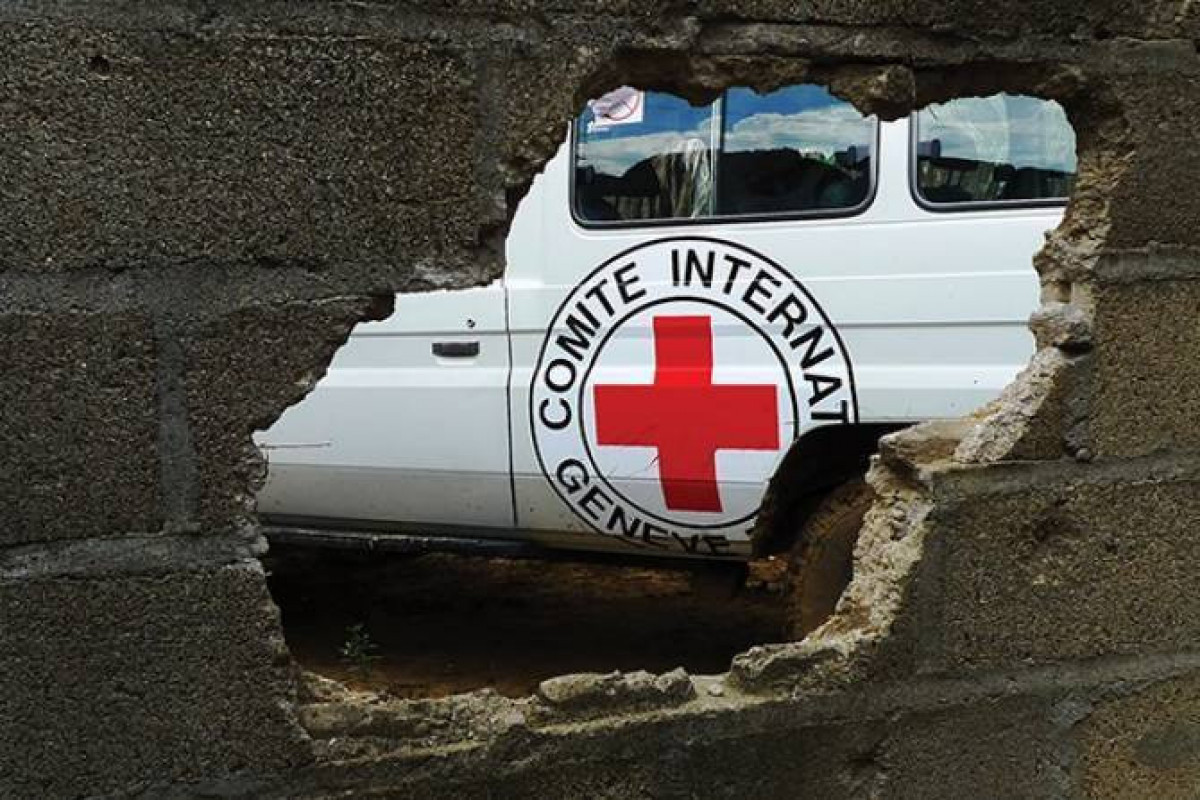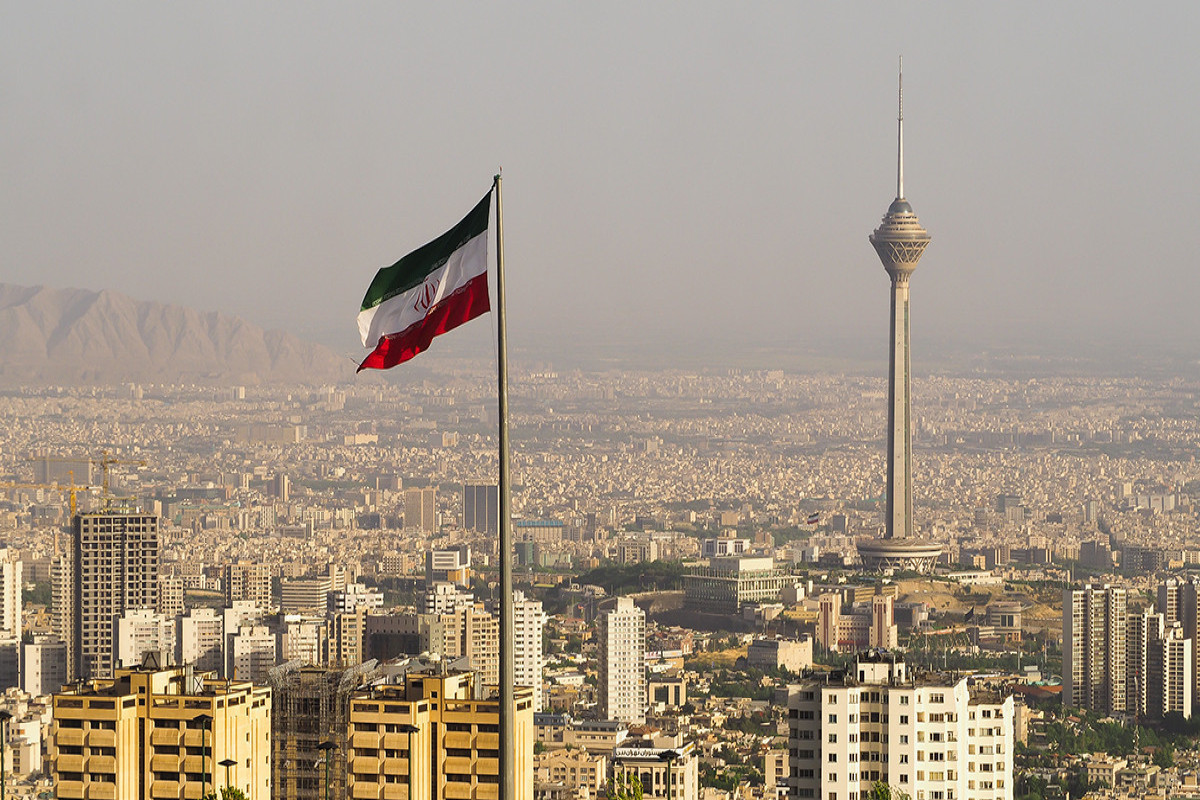Azerbaijan, which regained independence in 1991, faced military aggression by Armenia from the first day.
The war, marked by a deep political and economic crisis, army inexperience, and provisioning difficulties, ended on May 12, 1994, with the "Bishkek Protocol."
Against the background of temporary occupation and 20% of its territory being enslaved, the first Karabakh war made the construction of the army a priority in the country's political and economic development in the coming years.
In this regard, a planned and consistent effort was carried out from a diplomatic, economic, political, and military standpoint throughout the 26 years between the first and second Karabakh war. The Great Leader Heydar Aliyev laid the groundwork for the construction of the army and diplomatic efforts. During this period, the country's political and economic situation stabilized, and the necessary conditions for fast development were created. At the same time, Heydar Aliyev showed clearly that the Azerbaijani people would not accept the occupation of Karabakh and the "red lines" that existed for our country.
Ilham Aliyev, who was elected president in 2003, dutifully carried on his predecessor's political course and gave fresh impetus to the process.
Ilham Aliyev, as Supreme Commander-in-Chief of the Armed Forces, defined the main directions in army building and undertook consistent steps in this regard.
This included boosting the military budget, improving the social situation of the military, diversifying the supply of weaponry, as well as enhancing the professionalism of military personnel, and extending military-technical cooperation with a number of nations, including the brotherly state of Turkiye.
This planned activity is also reflected in the military budget given to the military sector. According to the Stockholm International Peace Research Institute, Azerbaijan allocated 23.6 billion dollars from the state budget for military costs between 2009 and 2019. However, Armenia spent just 4.3 billion dollars on the army over the same time while making unconstructive and maximalist demands in the Karabakh negotiations.
To enrich Azerbaijan's military arsenal with modern weapons, various weapons and equipment from various countries, including "Bayratkar TB2" unmanned aerial vehicles (UAVs) from Turkiye, "Harop" and "Hermes" UAVs from Israel, TOS from Russia 1A "Solntsepyok" heavy artillery systems, T-90 tanks, and so on, were acquired.
In contrast to the Armenian army's approach based on the Soviet Union's experience in WWII and completely ignoring the rules of modern warfare, the country's political-military leadership under President Ilham Aliyev consists of highly professional mobile groups of special forces, UAV-The 5th Generation, based on the active use of missiles, high-precision reconnaissance vehicles, and artillery installations that are preparing for war.
Serzh Sargsyan, who was corrupt and a war criminal like Robert Kocharyan, was driven from office in 2018 by mass protests, and Nikol Pashinyan came to power. At first, there was hope that the new political leadership of Armenia would conduct a rational policy, but soon Nikol Pashinyan, like his predecessors, began to take non-constructive steps and make stupid statements. On August 5, 2019, during his speech in the occupied city of Khankendi, Azerbaijan, he said to the crowd that "Karabakh is Armenia, and that's the point," was the de facto suspension of the negotiation process. Following this populist statement, which is contrary to international law and norms, Armenia resorted to military provocation in July 2020 in the direction of the Tovuz region of the state border with Azerbaijan, which resulted in losses. On September 27 of that year, Armenia committed large-scale provocations on the border with Azerbaijan and along the contact line in Karabakh. As a result, the Azerbaijani Army started counter-offensive operations.
During the battles of April 2016 and the Tovuz battles of 2020, Azerbaijan showed a limited part of its military potential and demonstrated its military superiority in the second Karabakh war.
After first liberating Sugovusha from the enemy, our army then liberated Jabrayil, Hadrut, Fuzuli, Zangilan, Gubadli, and finally Shusha, the heart of Karabakh.
Throughout this period, during the 44-day battles, President of Azerbaijan Ilham Aliyev, as the Supreme Commander-in-Chief was closely familiar with the military operation plan, taking into account the geopolitical risks and the rapidly changing situation on the front, he made corrections to the "Iron Fist" operation.
The extensive interview that President Ilham Aliyev gave to the famous Russian magazine "Nasionalnaya oborona" on September 24, 2021, is important in this regard. The interview suggests that the head of the country played a key and guiding role in the course of the Patriotic War: "We made adjustments to the battle plan almost every day. I held daily consultations with the heads of the Ministry of Defense, the State Border Service, the Ministry of Internal Affairs, the State Security Service, and the Foreign Intelligence Service. In those meetings, we concluded the previous day, identified shortcomings, planned and approved operations for the next day."
The head of state also noted military mistakes made by the enemy during military operations.
"They made a mistake in the first phase of military operations; their counter-attack was completely stupid from a military standpoint. Instead of strengthening the defense line, they directed their forces to a counterattack and were completely destroyed," he analyzed the mistake of the military-political leadership of Armenia as a true military leader in his interview.
At the same time, the head of state did not humiliate the enemy and did not forget to mention the moments of his military resistance.
"I'd also want to emphasize the liberation of the Soltanli and Amirvarli towns. Why? Because there was a very strong fortified district there. We had to conduct very active military operations for several days to break the enemy's resistance. The enemy was fleeing in all directions, tossing away his weapon; the Armenians themselves admitted having 10,000 deserters. However, in some settlements, they stayed till the end. We must note it. No one should doubt, in my opinion, that the Armenian side showed tolerance in some operations, and in no case should we underestimate, humiliate, or diminish the enemy's dignity. Therefore, the liberation of Soltanli and Amirvarli, located on the route to Zangilan, was critical in terms of the ensuing course of events," he said in the interview.
He directly led military operations; as the real Supreme Commander-in-Chief, he expertly guided what was happening on the front lines and changes in operational conditions.
Every day of the Patriotic War, the Azerbaijani Army, led by the Supreme Commander, used new tactics that would go down in military history and conducted operations that confused the enemy. The liberation of Shusha from occupation was the most unique of these operations. According to the analysis of the processes, one of the main stages of the strategy prepared by Supreme Commander-in-Chief Ilham Aliyev was the liberation of Shusha from occupation. During the operations, the president told the Turkish television channel "A Haber" on October 16, "My position has always been that without Shusha, our work will be incomplete. Therefore, of course, the liberation of Shusha from occupation occupies a special place among our goals. We must strive for it, we must achieve it," he said. This statement came to an end on November 8 with the victory of Shusha, which was celebrated across the world and cemented the Supreme Commander-in-Chief of Azerbaijan, his commanders, and troops as legends.
This successful and swift operation in Karabakh, which has the relief of the territory, fortified regions, and various defense lines, was also greeted with attention by many military centers across the world. This influence is evident both in the ongoing conflicts in the Middle East and the Russia-Ukraine war. Based on the experience of the Second Karabakh War, the countries of the world are trying to actively use UAVs, and increase the number of special forces and their firepower. The world's leading military schools and think tanks study and analyze the 5th generation war waged by Azerbaijan, and the strategies and tactics used in this war.
The operation planned and executed by Azerbaijan's military and political leadership, led by Supreme Commander-in-Chief Ilham Aliyev, will go down in modern global military history as one of the most successful examples.
The triumph in Karabakh was made possible by caring for the troops, planning, and persistent labor, increasing the patriotic spirit of the people to a high level and forming a tight alliance between the people and the government for the sake of common action. This is confirmed by President of Azerbaijan Ilham Aliyev's comments in an interview with local television channels on January 12, 2022: "Taking into account the fact of the occupation, military construction concerns have always been at the top of my agenda. This subject has always dominated my work schedule, public presentations, and relations with my counterparts. Of course, this topic united the entire nation, and we all tried to ensure the restoration of the territorial integrity of Azerbaijan."
The 44-day war under the leadership of Ilham Aliyev is engraved in gold letters in the history of the Azerbaijani people and state. The President of Azerbaijan was widely recognized and respected across the world as a skilled politician and master diplomat. The Patriotic War's great victory cemented Ilham Aliyev's name as a skilled commander, decisive military leader, and skilled strategist.


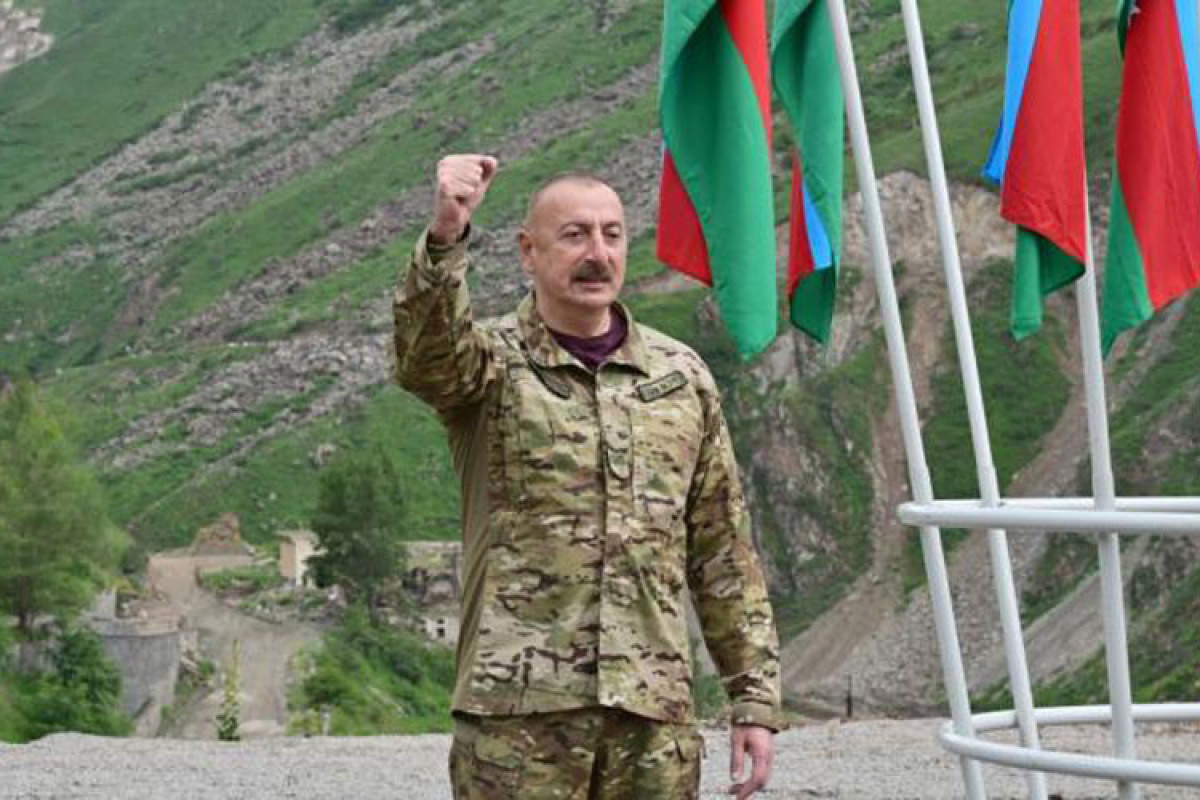
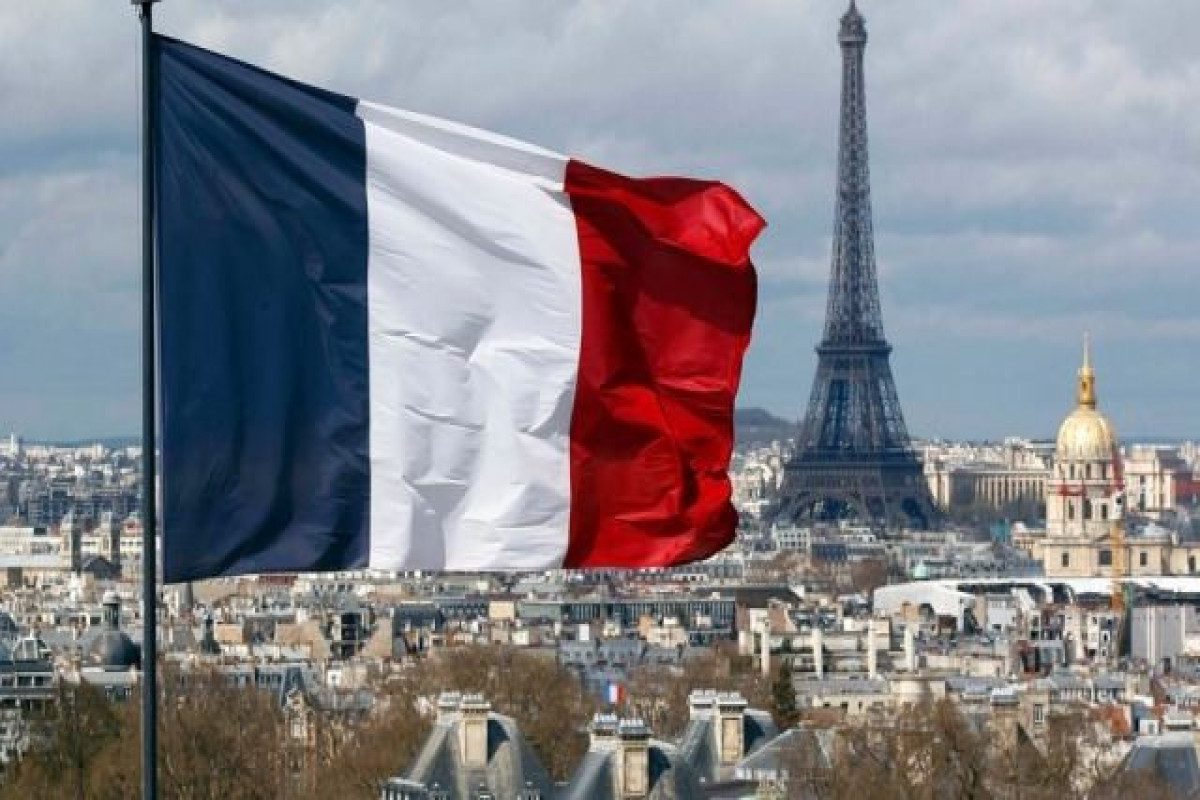
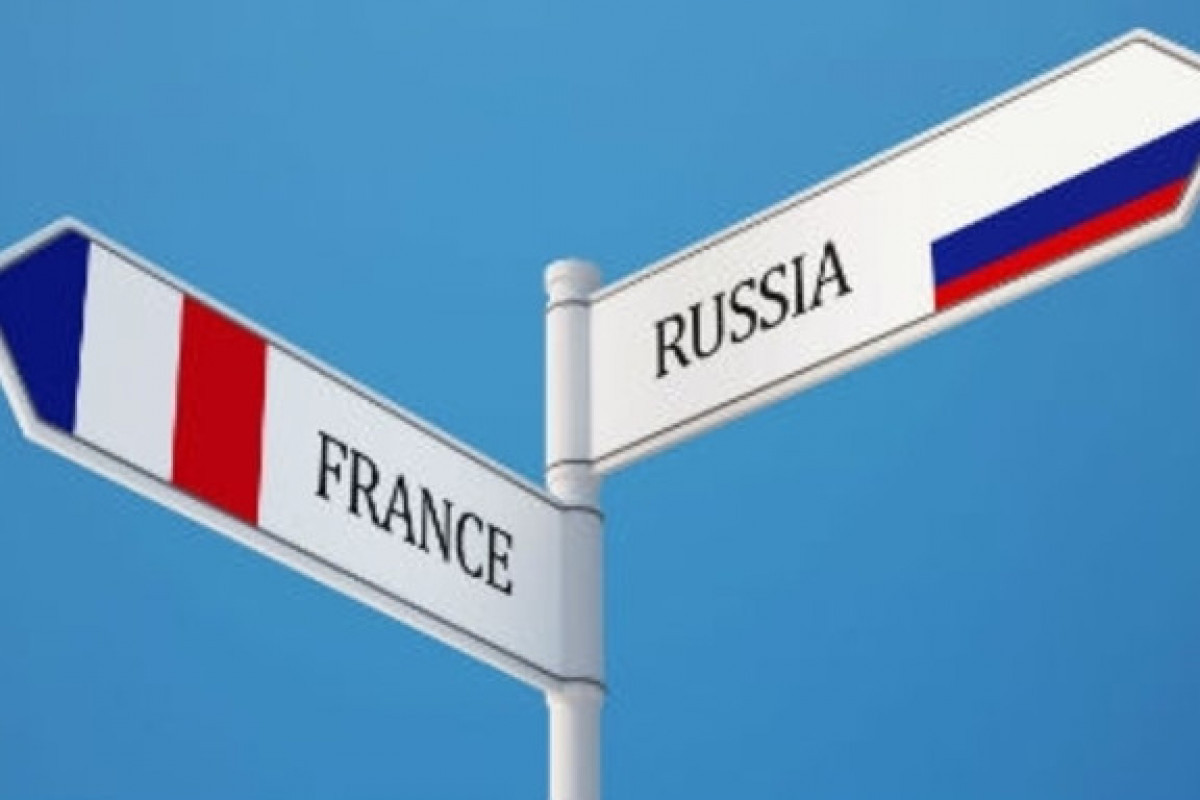 ANALYSIS'>
ANALYSIS'>
